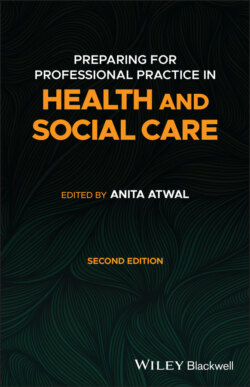Читать книгу Preparing for Professional Practice in Health and Social Care - Группа авторов - Страница 11
Conceptions of Practice
ОглавлениеThe connection between how healthcare practitioners deal with knowledge in their practice lives has been characterised in the past as a continuum between technical rationality and professional artistry. Technical rationality is instrumental problem solving made rigorous by the application of scientific theory and technique (Schön 1983, p. 21). It is placing theory and the learning that is needed as a necessary step before practice can be mastered. Technical rationality assumes that theory is an essential precursor to practice; without it practice is impossible. It relies on the practitioner ‘receiving knowledge from others to enable them to practice’ (Rolfe et al. 2001, p. 11).
On the other hand, professional artistry are clinicians that are challenging knowledge and its currency. They are creative and are happy to embrace uncertainty. Theory emerges from practice. Post graduate study is one means to promote critical thinking (Thomson et al. 2014).
If we understand that theory is not simply the precursor to knowledge and therefore practice but an important ingredient in how care is delivered, then we have to begin to engage with it as something that is alive and adaptable whilst we practice. Learning the skills of reflection and becoming a reflective practitioner are important steps to achieving this.
The ways that healthcare practitioners are expected to come to decisions about the care they deliver are often described as EBP or clinical reasoning. Do these two concepts offer any help when it comes to relating knowledge to practice?
